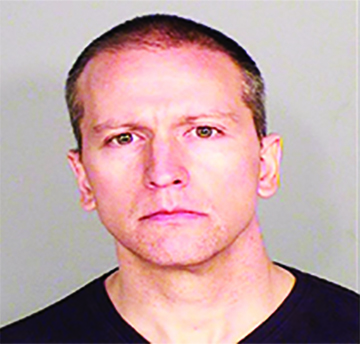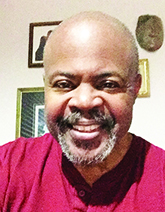
What does Chauvin sentence signal for future police shooting Black cases?

By Cash Michaels

Because of Minnesota’s sentencing guidelines, the most time that former Minnesota Police Officer Derek Chauvin could have expected to have been punished with for the May 25, 2020 second, and third-degree murder and manslaughter of unarmed North Carolinian George Floyd was 40 years in prison.
The Chauvin case, the first of four connected to Floyd’s slaying, was watershed in terms of the aggressive prosecution, but in the opinion of many, including some of Floyd’s family, the 22.5 year sentence rendered by presiding District Court Judge Peter Cahill on June 25th didn’t go far enough to send a message to racist and abusive police officers that unnecessary brutality against unarmed Black citizens is no longer to be tolerated by the criminal justice system, but will be punished to the fullest extent of the law.
"Derek Chauvin will spend a significant portion of his life behind bars ... so that seems to be appropriate," Ayesha Bell Hardaway, assistant professor at the Case Western Reserve University School of Law told the Insider, an online magazine. "I'm hesitant, as some may be inclined to think that it means anything significant about police reform in this country."
Indeed Chauvin - a relatively young 45-years-of-age could be walking the streets of Minnesota again in just 15 years with good behavior, critics say. Given that Chauvin displayed no mercy or consideration for George Floyd’s life when he handcuffed, and then jammed his knee against Floyd’s neck for over nine minutes until the life drained out of the Black man, many critics believed deserved the maximum punishment under Minnesota law.
"What kind of message are you sending to our country?" Brandon Williams, Floyd’s nephew, asked at a family press conference after the sentence was handed down. "What kind of message are you sending to the younger kids like Gianna (Floyd’s young daughter), that you can kill a man in cold blood and get a slap on the wrist?"
The message that was sent, many activists agree is that similar police abuse cases will continue to require maximum pressure from family members, their attorneys, and the community on the criminal justice system to deliver requisite justice when a sworn officer acts beyond the scope of their oath, ultimately taking a life in the process.
That axiom is certainly clear here in North Carolina, where the Andrew Brown Jr. police killing case in Pasquotank County continues to be an open wound for the family and community.
"If we're being honest with ourselves…,” said former Pres. Barack Obama after Chauvin guilty verdict in April, “… we know that true justice is about much more than a single verdict in a single trial."
Still, in the minds and hearts of others, including members of George Floyd’s family, while Derek Chauvin did not get the maximum sentence allowed, he did get enough for them to move forward with.
"It will certainly give him something to think about – the devastation that he caused for our family and what we had to relive during that trial," Roger Floyd, George Floyd’s uncle in Raleigh told WRAL-TV last week, said.
"As a family, we're doing so much better," he added. "We're getting there one day at a time, and I think this [sentence] will somewhat close the chapter on this aspect of it."
Derek Chauvin still faces federal civil rights violation charges.
Passage of H.R. 7120 - the George Floyd Justice in Policing Act, is still pending in the U. S. Senate.


